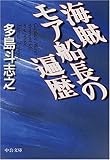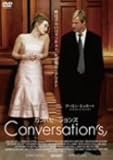
Let's Play: 'Little Princess' (Rhapsody 2) - 1
Hey guys! I'm back! This is my first LP upload from college and my first LP recorded on my macbook instead of my desktop, so fingers crossed everything works out okay. Thanks Asty for the awesome suggestion! This is Little Princess (リトルプリンセス:マール王国の人形姫2), the second game in the Marl Kingdom game series. Rhapsody, the first game in the series, was released in the West but the other two were never translated unfortunately. Rhapsody is a great game so I recommend you either check it our for yourself or watch my LP of it so that you know all of the background to this game. This game is colourful, cheerful, and musical! Check it out and cheer it up! :D

"負けないで" from "白鳥麗子でございます!" played by ocha
『R35が弾きたい、聴いてほしいJ-POPあつめました(SHINKO)』から『負けないで』 ~ 『白鳥麗子でございます!』より作曲:織田哲郎確かに、勝ちにいくより、負けないようにした方が、上手くいくことが多い。

Words at War: Faith of Our Fighters: The Bid Was Four Hearts / The Rainbow / Can Do
Wanda Wasilewska (21 January 1905 -- 29 July 1964) was a Polish and Soviet novelist and communist political activist who played an important role in the creation of a Polish division of the Soviet Red Army during World War II and the formation of the People's Republic of Poland. She had fled the German attack on Warsaw in September 1939 and taken up residence in Soviet-occupied Lviv and eventually the Soviet Union. Wasilewska was born on 25 January 1905 in Kraków, Austria-Hungary. Her father was Leon Wasilewski, a Polish Socialist Party politician. She studied philosophy at the Warsaw University and Polish language and Polish literature at the Jagiellonian University in Kraków. After she graduated she remained at her alma mater and passed her doctorate exams in 1927. While studying she started cooperation with the Union of Socialist Youth and Society of Workers' Universities. Soon after she finished her studies she started working as a school teacher and a journalist for various left-wing newspapers, among them "Naprzód", "Robotnik", "Dziennik Popularny" and "Oblicze Dnia". She also became the chairperson of the "Płomyk" and "Płomyczek" monthlies for children, where she introduced Soviet propaganda. Although she was often criticised for her radical left-wing opinions, she joined the PPS instead of the communist party, where she was soon promoted to a member of the main party council. In her early political career she supported an alliance of all the left-wing parties with ...







